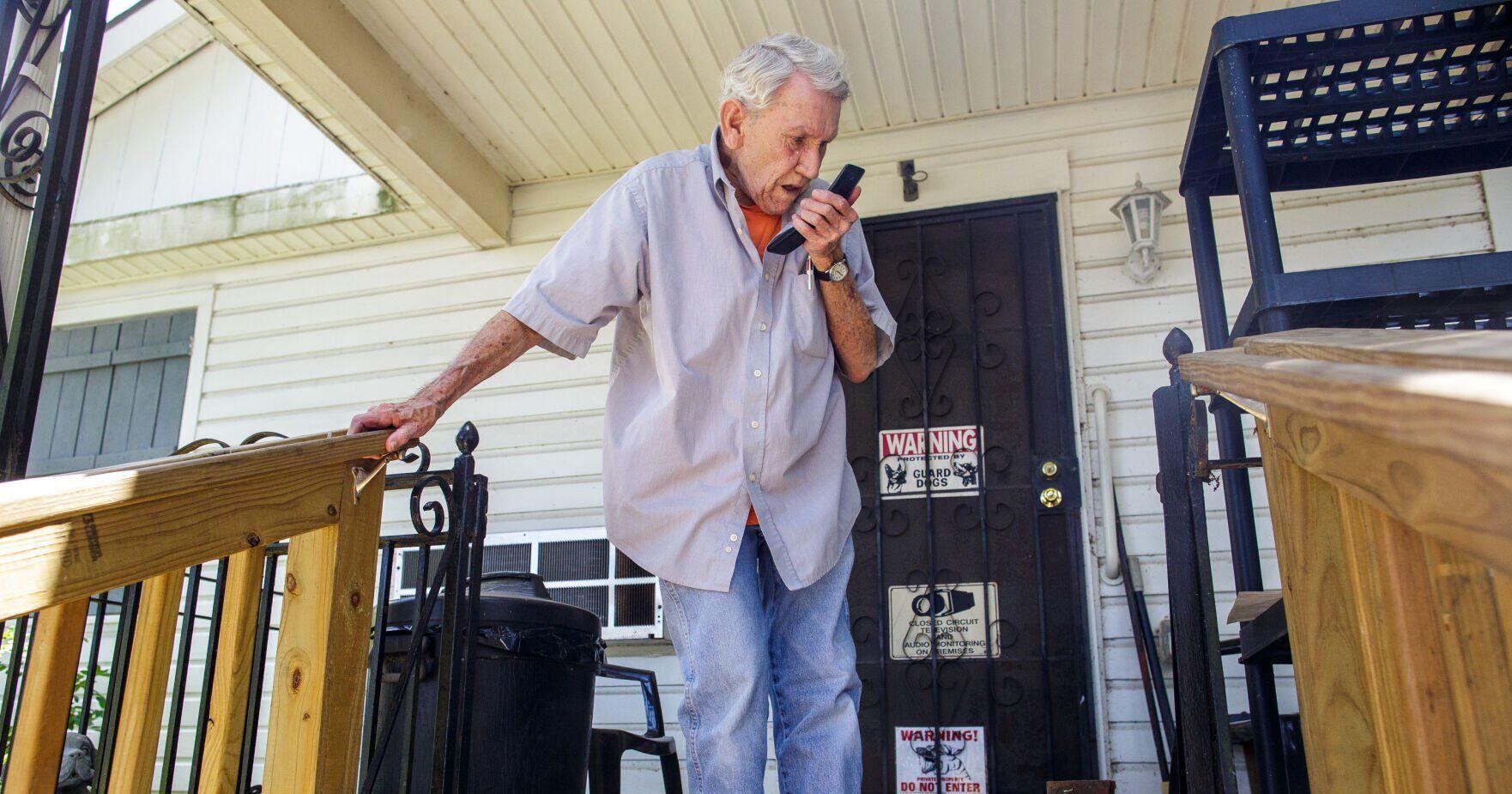Jack Dee stands on his porch as he talks to a neighbor on a cell phone in New Orleans, La. Tuesday, June 7, 2022. (Photo by Max Becherer, NOLA.com, The Times-Picayune | The New Orleans Advocate)
Every day, the New Orleans Council on Aging fields about 30 calls from older adults trying to make sense of their Medicare options. Some need help comparing plans during open enrollment, which began last week. Others are panicked over rising prescription prices and out-of-pocket costs while on a fixed income.
“The doctor prescribes a medication that’s $700. Your insurance pays $200. It may as well be $7,000,” said Nancy Grossley, a former social worker who now answers the phone at NOCOA and guides seniors through options several times a week at information sessions.
Even with insurance, many older adults are forced to make impossible choices.
“You do end up spending money on medication and doctors’ visits and procedures you can’t really afford,” Grossley said. “But then you have to afford it."
During this year's Medicare open-enrollment period, which continues through Dec. 7, advocates and new data suggest that Louisiana’s seniors face steep challenges accessing and affording care.
The state ranks last in the nation for how well Medicare serves its residents, according to the 2025 State Medicare Scorecard, an annual ranking from the Commonwealth Fund, which compares the 50 states and the District of Columbia across 31 measures of access, quality, affordability and health outcomes.
Medicare is the federal health insurance program for people 65 and older and for some younger people with disabilities or serious illnesses. In Louisiana, roughly 1 in 5 people are Medicare enrollees, amounting to roughly 940,000 people, according to a 2024 analysis from KFF.
David Radley, study author and a senior scientist at the Commonwealth Fund, a century-old nonprofit that works to improve health outcomes, said Louisiana’s older residents face “a really tough situation.” They’re sicker and poorer than elderly people in most other places.
“Louisiana is a very low-income state,” said Radley, pointing out that one-quarter of older adults in Louisiana are below the poverty level, compared to 19% nationally. “The cards are stacked against beneficiaries in the state.”
